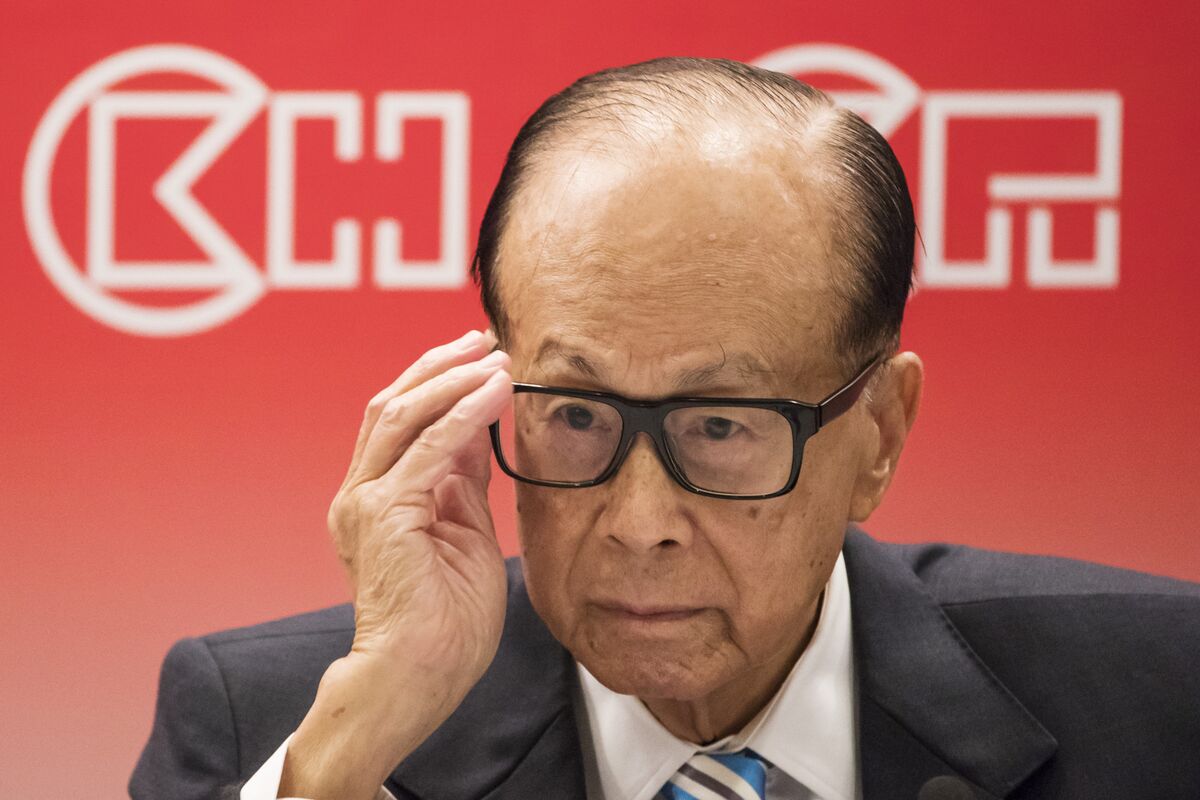China Halts New Deals With Li Ka-shing Family Over Panama Ports Controversy
Introduction
China has reportedly instructed state-owned enterprises to pause new business collaborations with companies linked to billionaire Li Ka-shing and his family. This decision follows Li’s controversial move to sell two strategic Panama ports to a private firm, a transaction that has drawn scrutiny from Beijing. The development highlights the delicate balance between private enterprise and state interests in China’s economic landscape.

Caption: Li Ka-shing, Hong Kong’s richest man, has long been a key figure in global infrastructure investments. (Source: Bloomberg)
The Panama Ports Deal That Sparked Tensions
Li Ka-shing’s conglomerate, CK Hutchison Holdings, announced plans to sell its stakes in two major Panama ports—Balboa and Cristobal—to a private investment group. These ports are critical to global trade, positioned at the Pacific and Atlantic entrances of the Panama Canal.
Why Beijing Is Concerned
- Strategic Importance: The Panama Canal is a vital maritime route, and Chinese state firms have been expanding their port investments worldwide as part of the Belt and Road Initiative (BRI). - Loss of Influence: The sale to a private entity, rather than a Chinese state-backed firm, may reduce Beijing’s leverage over key trade routes. - Perceived Disloyalty: Some officials view Li’s decision as prioritizing profit over national interests, given his historically close ties to mainland China.
China’s Response: A Pause on New Deals
According to sources familiar with the matter, Chinese authorities have advised state-owned enterprises (SOEs) to temporarily halt new agreements with Li Ka-shing-affiliated businesses. While existing contracts remain unaffected, the move signals Beijing’s displeasure.
Potential Implications
- Investment Freeze: CK Hutchison’s future infrastructure projects in China could face delays. - Broader Business Climate: The decision may deter other tycoons from making deals that conflict with state priorities. - Geopolitical Ripples: The Panama ports issue could influence how China engages with private investors in strategic sectors.
Li Ka-shing’s Business Empire and China’s Economic Strategy
Li Ka-shing, often called “Superman” for his business acumen, built a vast empire spanning ports, telecom, energy, and real estate. His companies, including CK Hutchison and CK Asset Holdings, have been major players in China’s economic rise.
Historical Ties with Beijing
- Early Investments: Li was among the first Hong Kong tycoons to invest heavily in mainland China after its economic reforms. - Philanthropy: His donations to Chinese universities and disaster relief efforts earned goodwill. - Recent Shifts: In recent years, Li has diversified investments into Europe and other regions, raising eyebrows in Beijing.
The Belt and Road Angle
China’s Belt and Road Initiative (BRI) aims to expand its global trade and infrastructure influence. Ports are a cornerstone of this strategy, making Li’s Panama sale particularly sensitive.
Key BRI Port Investments
| Port | Location | Chinese Investor | |------|----------|------------------| | Piraeus | Greece | COSCO Shipping | | Gwadar | Pakistan | China Overseas Port Holding Company | | Hambantota | Sri Lanka | China Merchants Port Holdings | By relinquishing control of Panama’s ports, Li’s move could be seen as undermining BRI’s expansion.
What This Means for Global Investors
The Chinese government’s reaction underscores the risks foreign and private investors face when dealing with strategic assets.
Lessons for Multinationals
1. Align with State Priorities: Businesses operating in China must consider geopolitical implications. 2. Transparency Matters: Sudden deals without prior consultation can trigger regulatory pushback. 3. Diversification vs. Diplomacy: While global expansion is lucrative, maintaining strong ties with Beijing remains crucial.
Conclusion
China’s decision to pause new deals with Li Ka-shing’s empire reflects broader tensions between private capital and state-driven economic strategies. As Beijing tightens oversight over critical infrastructure, investors must navigate an increasingly complex landscape where business decisions carry geopolitical weight. For now, the Panama ports saga serves as a cautionary tale—balancing profit motives with national interests is no easy feat, even for Asia’s most seasoned tycoons. [IMAGE_2] Caption: The Panama Canal remains a linchpin in global shipping, making port ownership a highly strategic asset. (Source: Unknown) Would you like any refinements or additional details on specific aspects of this development?